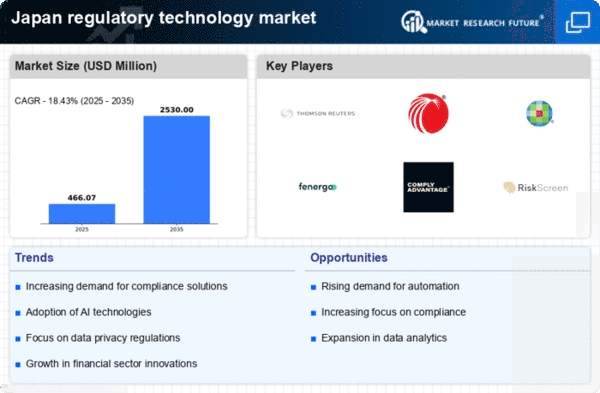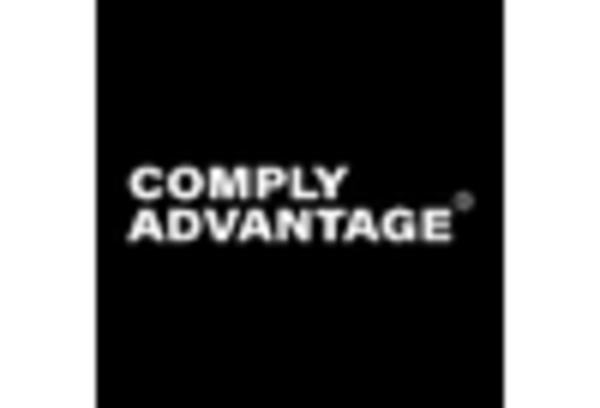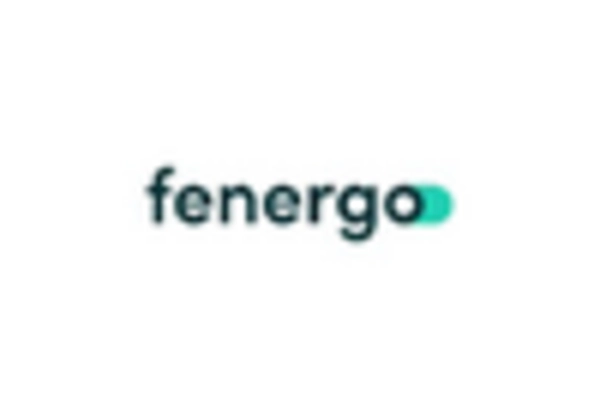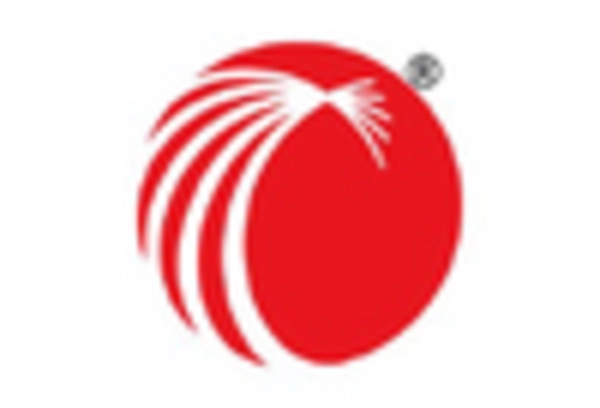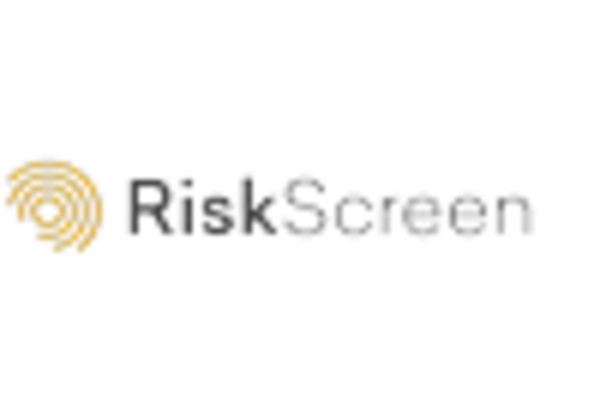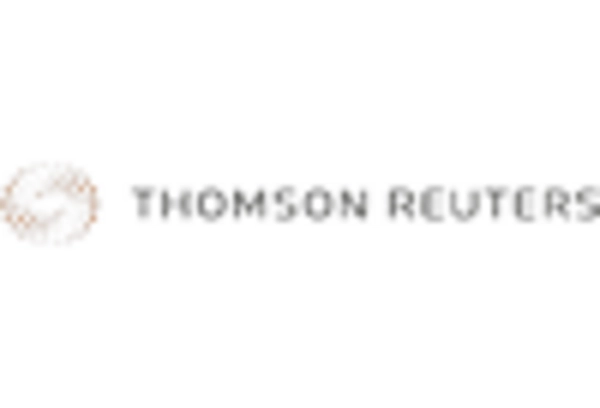Growing Cybersecurity Concerns
In Japan, the regulatory technology market is being propelled by escalating concerns regarding cybersecurity threats. As organizations digitize their operations, the risk of data breaches and cyberattacks has surged, prompting a demand for robust regulatory technology solutions. In 2025, it is estimated that cybercrime will cost Japanese businesses over $30 billion annually, highlighting the critical need for effective compliance measures. Regulatory technology solutions that focus on cybersecurity compliance are becoming essential for organizations to protect sensitive data and maintain customer trust. This trend indicates a shift towards integrated compliance solutions that encompass both regulatory adherence and cybersecurity measures, thereby driving growth in the regulatory technology market.
Regulatory Compliance Pressure
The regulatory technology market in Japan is experiencing heightened pressure from both domestic and international regulatory bodies. This pressure compels organizations to adopt advanced compliance solutions to meet stringent regulations. In 2025, the Japanese Financial Services Agency (FSA) has intensified its scrutiny on financial institutions, leading to an increased demand for regulatory technology solutions. Companies are investing in compliance software to ensure adherence to laws such as the Financial Instruments and Exchange Act. This trend is expected to drive the market's growth, as organizations seek to mitigate risks associated with non-compliance, which can result in substantial fines and reputational damage. The regulatory technology market is projected to grow at a CAGR of 15% from 2025 to 2030, reflecting the urgency for compliance solutions.
Technological Advancements in Fintech
The regulatory technology market is significantly influenced by rapid technological advancements within the fintech sector in Japan. Innovations such as machine learning and big data analytics are being integrated into compliance solutions, enhancing their effectiveness. As of 2025, the fintech industry in Japan is valued at approximately $20 billion, with a substantial portion allocated to regulatory technology. This investment is driven by the need for real-time monitoring and reporting capabilities, which are essential for maintaining compliance in a fast-paced financial environment. The synergy between fintech and regulatory technology is likely to foster a more robust compliance framework, thereby propelling the market forward. Companies are increasingly recognizing the value of investing in regulatory technology to streamline operations and reduce compliance costs.
Increased Focus on Environmental Regulations
The regulatory technology market in Japan is witnessing a surge in demand due to an increased focus on environmental regulations. The Japanese government has implemented stricter environmental laws aimed at reducing carbon emissions and promoting sustainability. As of 2025, companies are required to comply with the new Greenhouse Gas Emissions Act, which mandates comprehensive reporting and monitoring of emissions. This regulatory landscape compels organizations to adopt regulatory technology solutions that facilitate compliance with environmental standards. The market is likely to expand as businesses seek to integrate sustainability into their operations while ensuring adherence to evolving regulations. This trend not only supports regulatory compliance but also enhances corporate social responsibility initiatives.
Rising Demand for Transparency and Accountability
The regulatory technology market is being driven by a rising demand for transparency and accountability among businesses in Japan. Stakeholders, including consumers and investors, are increasingly advocating for clear reporting and ethical practices. In 2025, the Japanese government has introduced new guidelines that require companies to disclose their compliance practices and risk management strategies. This regulatory shift is prompting organizations to invest in regulatory technology solutions that enhance transparency and facilitate better reporting. The emphasis on accountability is likely to foster a culture of compliance, thereby driving growth in the regulatory technology market. Companies that prioritize transparency are expected to gain a competitive edge, as they build trust with stakeholders and mitigate risks associated with non-compliance.


